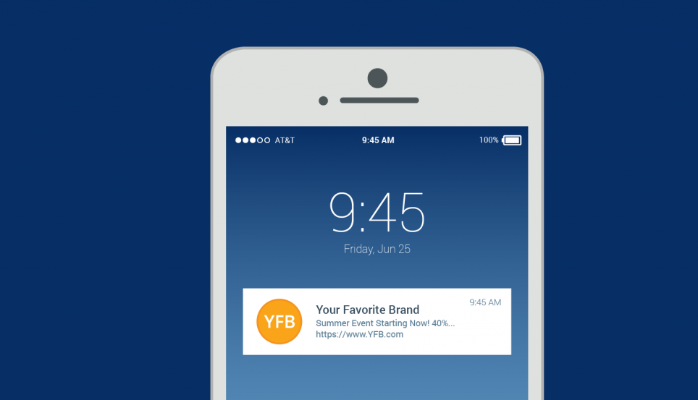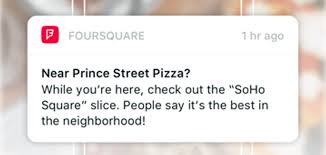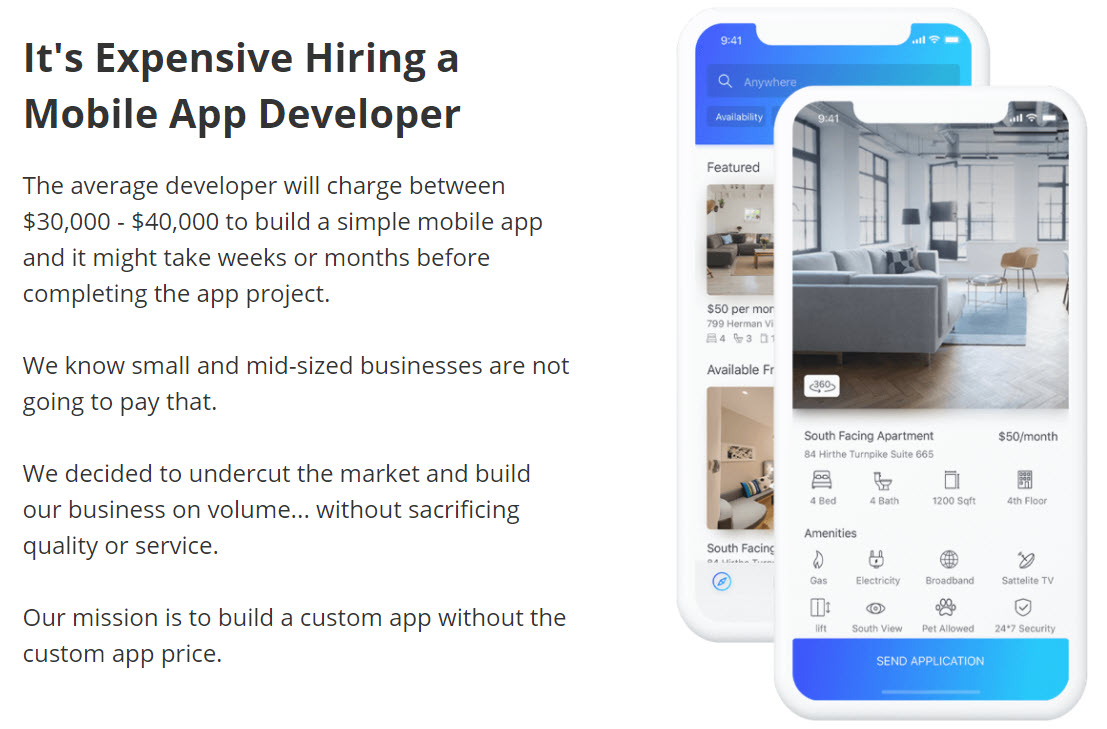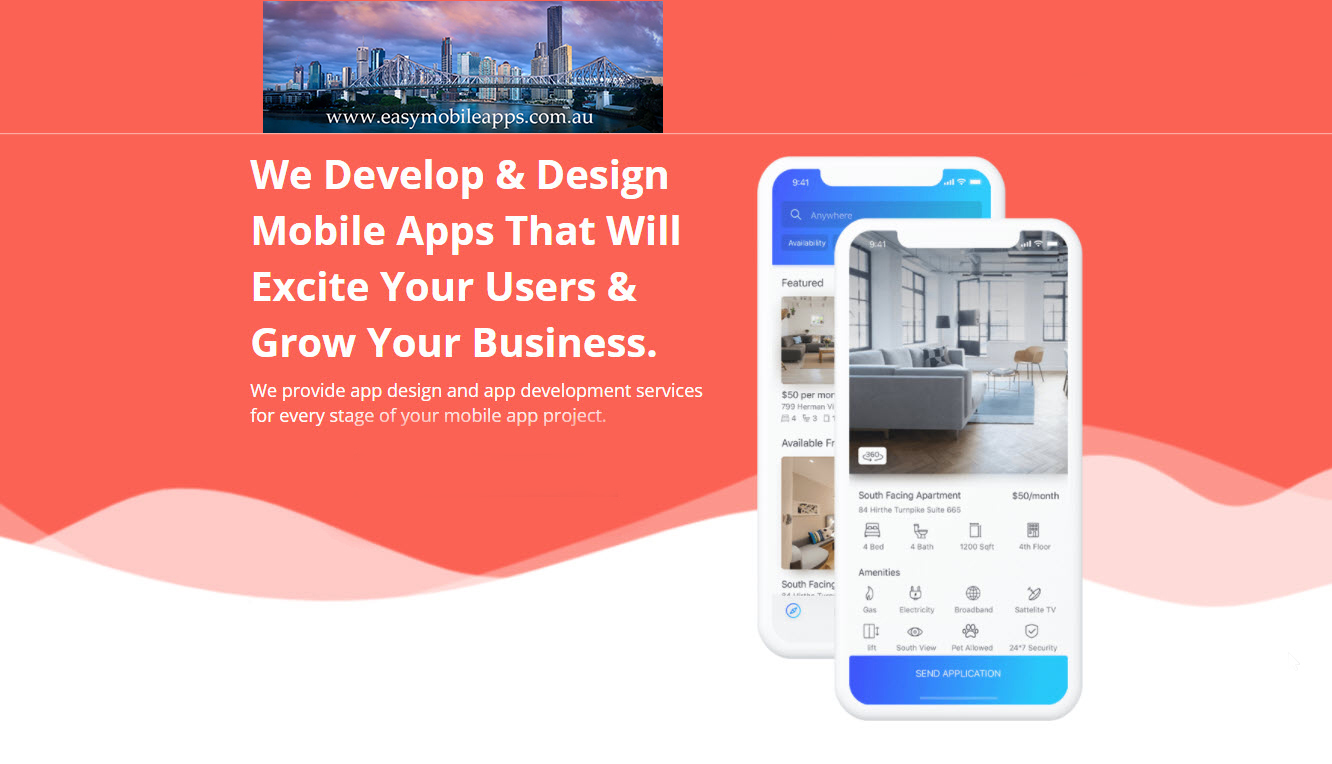
7 Compelling Reasons Why your Business Must Have A Mobile App
Benefits of an APP.mp4 from Billy Henry on Vimeo.
If you think that mobile apps are solely for big name brands like McDonalds and Westpac, you are wrong. More and more small and midsize businesses are following the mobile trend, understanding that an effective mobile strategy involves more than just a mobile-friendly website. In fact, these days you’ll notice that many small businesses you interact with in your everyday life have their own dedicated mobile app — be it the corner coffee shop or the beauty spa downtown. These companies are ahead of the game when it comes to taking their marketing to the next level.
1. Be Visible to Customers at All Times
Statistics show that the average person spends more than two hours a day (!) on his or her mobile device. While probably only a handful of applications make up the bulk of this total usage, it doesn’t change the fact that each user has to unlock, scroll, and scan their device for the apps they’re looking for. Being “in the way” can be an advantage to your company, as our mind unconsciously does record every image and text (or well-designed app icon!) it comes across — even if it happens unnoticed.
2. Create a Direct Marketing Channel
Apps serve many functions: they can provide general info, prices, booking forms, search features, user accounts, messengers, news feeds, and much more. One of the biggest benefits of having a mobile app is that all the information you’d like to provide to your customers – including special sales and promotions – is right at their fingertips. Through push notifications you’re getting even closer to a direct interaction, and can easily remind customers about your products and services whenever it makes sense.
What are push notifications?
A push notification is a message that pops up on a mobile device. App publishers can send them at any time; users don’t have to be in the app or using their devices to receive them. They can do a lot of things; for example, they can show the latest sports scores, get a user to take an action, such as downloading a coupon, or let a user know about an event, such as a flash sale. Push notifications look like SMS text messages and mobile alerts, but they only reach users who have installed your app. Each mobile platform has support for push notifications — iOS, Android, Fire OS, Windows
Examples of Push Notifications


Why are push notifications used?
Push notifications provide convenience and value to app users. For example, users can receive:
-
Sports scores and news right on their lock screen
-
Utility messages like traffic, weather and ski snow reports
-
Flight check in, change, and connection information
For app publishers, push notifications are a way to speak directly to a user. They don’t get caught in spam filters, or forgotten in an inbox — click-through rates can be twice as high as email. They can also remind users to use an app, whether the app is open or not. They can also be used to drive actions, such as:
-
Promoting products or offers to increase sales
-
Improving customer experience
-
Converting unknown app users to known customers
-
Sending transactional receipts right away
-
Driving users to other marketing channels, such as social networks
3. Provide Value to Your Customers
Talking about on-hand information, how about digitalizing that loyalty program you have in place? Instead of sticking to the old point-collection card, make it possible for your customers to collect their rewards via your mobile app. The result? More downloads and more return customers. (Check out PunchMe, a service that lets you create smartphone-based loyalty programs.)
4. Build Brand and Recognition
A mobile app for your business can greatly contribute to your brand awareness. I’d like to break this topic down into two aspects, the combination of which will make your app a true winner:
-
Brand. A mobile app is like a blank billboard sign. You can do what you want with it; you can make it stylish, hip, functional, shocking, or informative. But what you really want to do is create an app that has features your customers will love, while at the same time is well branded and beautifully designed.
-
Recognition. The more often you can get customers involved with your app, the sooner they will be inclined to buy your product and/or service. In advertising this is called the “effective frequency”: as a rule of thumb, hearing and/or seeing your brand approximately 20 times is what will get you truly noticed.
5. Improve Customer Engagement
No matter whether you are selling flowers or spa services, your customers need a way to reach you. Having a messaging (or help desk) feature within your app can really make a difference in the way you communicate with your customers. Think about it: OpenTable, for example, built its entire business model around this principle. Instead of calling a restaurant for a table, you can book it with less than five clicks on their platform. Now think about it: How many customers would prefer to communicate with you via text than via phone?
6. Stand Out From the Competition
These days mobile apps at the small business level are still rare, and this is where you can take a big leap ahead of your competitors. Be the first in your neighbourhood to offer a mobile app to your customers. They’ll be astonished by your forward-thinking approach!
7. Cultivate Customer Loyalty
Last, but not least, the most important reason why you should consider building your own mobile app is customer loyalty. With all the noise out there — roadside banners, billboards, flashing signs, newspaper ads, flyers, coupons, websites, website banners, Facebook ads, and email marketing — we slowly lose our impact on customers because of the immense amount of advertising surrounding us all. It’s time to go back to making a true and sincere connection with your customers, and making them a loyal lover of your product and/or service. I am not saying a mobile app is going to save your business, but it can be a way of staying closer to your customers, and being just a “fingertip” away at all times.
Now that you have gotten a taste of the numerous benefits of your own business mobile app, where are you going to start?

Examples of business that would benefit from having a mobile app:
Real Estate, Automotive, Restaurants, Take away shops, Hairdressers, Beauty Salons, Chemists, Chiropracters, Carpet Cleaning, Pest Control Services etc
Give us a call on 0434 230703 or visit www.easymobileapps.com.au for more information.
Either way you go, a mobile app is going to be a standard component of any business in the future. The choice you make today is going set the foundation for the future of your business. It’s on you to decide whether you’d like to be one of the first.







